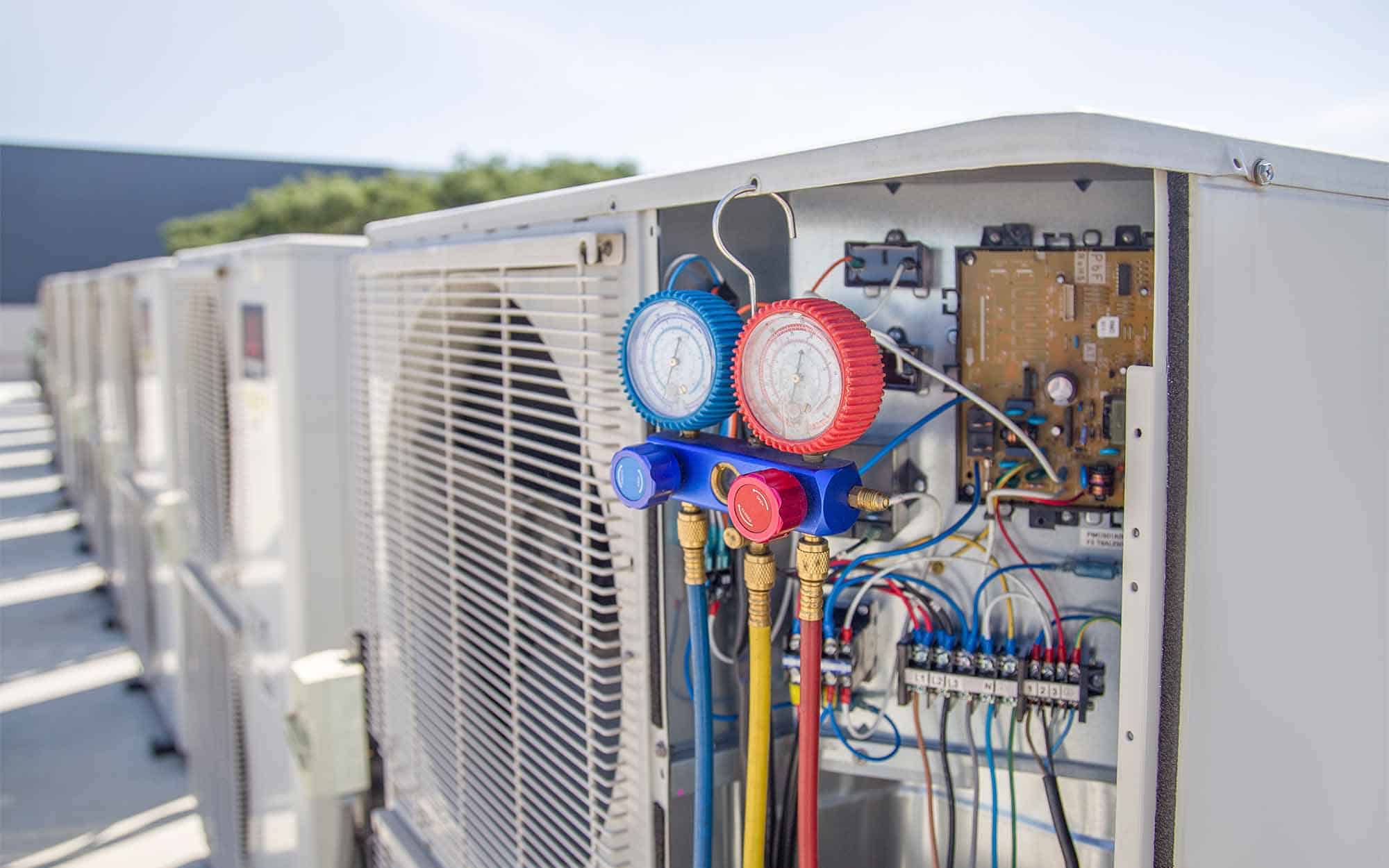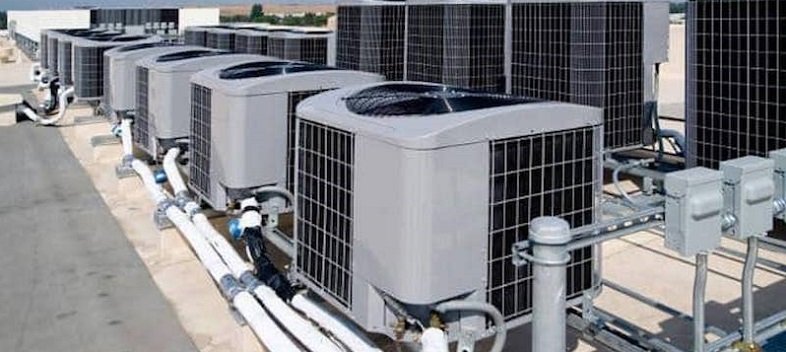Everything You Should Check During heat pump service
Everything You Should Check During heat pump service
Blog Article
Choosing Between a Heatpump and Furnace: Key Factors To Consider for Your Cooling And Heating Demands
When reviewing heating options for a/c requires, the decision between a heat pump and a heater can be complex. Each system offers unique advantages customized to particular climates and energy effectiveness goals. Recognizing these distinctions is essential for making an educated choice. Trick variables such as setup prices and ecological impact better make complex the option process. Which option absolutely lines up with one's convenience and sustainability choices? The complying with sections will discover these factors to consider carefully.
Comprehending Warmth Pumps: How They Work and Their Advantages
While several homeowners think about various heating options, recognizing exactly how heatpump function and their benefits can considerably influence their choice. Warm pumps run by moving heat as opposed to generating it. In the winter months, they extract warm from the outdoors air or ground and transfer it indoors, while in the summer season, they reverse this procedure, cooling the home by removing warm outside. This dual performance makes them versatile for year-round climate control.One of the primary advantages of heat pumps is their power performance. They use significantly less electrical power compared to traditional heater, potentially causing reduced utility costs (heat pump service). In addition, warm pumps have a smaller carbon footprint, making them an eco-friendly choice. They likewise call for less upkeep than standard systems, adding to long-term expense financial savings. On the whole, understanding the technicians and advantages of heat pumps can help home owners make informed decisions regarding their heating and cooling down needs
Discovering Heating Systems: Types, Operation, and Advantages
Furnaces come in different kinds, consisting of gas, electrical, and oil designs, each with distinct operational mechanisms. Understanding these differences is necessary, as they affect efficiency and heating efficiency. In addition, heating systems offer numerous benefits, such as consistent warm outcome and dependability in chillier climates.
Types of Heating systems
Furnace can vary substantially in layout and operation, with heating systems being a prominent choice among house owners. There are numerous kinds of furnaces, each making use of various fuel resources and modern technologies. Gas furnaces are usual, leveraging natural gas to generate warmth successfully. Electric furnaces, on the various other hand, utilize electrical resistance to create heat, typically preferred for their straightforward installation. Oil heaters, while much less typical, work in areas with restricted gas accessibility (heat pump service). Furthermore, condensing heaters make best use of power performance by reusing and catching exhaust gases. Each type runs via a system of warmth exchangers and ductwork to distribute warm air throughout a home. Understanding the distinctions in between these furnace types is crucial for educated a/c choices
Benefits of Furnaces
For home owners looking for reliable warmth during cold months, the advantages of furnaces are significant. Heating systems give constant heating, ensuring even temperatures throughout the home. They are particularly efficient in extreme chilly, usually outshining heatpump in freezing conditions. Numerous kinds, including gas, electrical, and oil heating systems, offer adaptability to meet diverse demands and preferences.Furnaces likewise tend to have lower first installation costs contrasted to heat pumps, making them a more easily accessible choice for numerous. Their durable layout contributes to a longer life-span, with lots of units lasting over 15 years with appropriate maintenance. In addition, modern-day furnaces are frequently geared up with innovative innovation for enhanced efficiency, which can result in reduced power expenses. In general, heaters continue to be a dependable option for effective home heating.

Power Efficiency: Contrasting Warm Pumps and Furnaces
When contrasting power efficiency in between heatpump and furnaces, the Seasonal Energy Efficiency Ratio (SEER) plays a vital duty in determining efficiency. In addition, an operational price analysis discloses the long-term economic implications of each system. Comprehending these aspects can assist property owners in making educated choices concerning their home heating options.
Seasonal Power Efficiency Proportion
Energy effectiveness plays a vital role in the decision-making process in between heatpump and furnaces, particularly when considering the Seasonal Power Performance Ratio (SEER) This statistics steps the cooling effectiveness of heatpump over an entire cooling period, supplying a standard way to evaluate efficiency. Higher SEER rankings suggest greater energy effectiveness, translating to lower power intake and decreased energy expenses. In comparison, heating systems are usually evaluated utilizing the Annual Fuel Usage Performance (AFUE) rating, which shows heating performance. When contrasting these two systems, house owners ought to prioritize SEER ratings for warm pumps, as they directly effect overall power cost savings and environmental sustainability. A complete understanding of SEER can especially influence the lasting fulfillment and cost-effectiveness of the chosen HVAC service.
Functional Expense Evaluation
Understanding the functional costs linked with warmth pumps and heating systems is crucial for home owners evaluating their options. Heat pumps commonly ductless mini splits offer greater energy effectiveness, transforming electric power into heat with marginal waste. This results in reduced monthly utility bills, particularly in modest environments. Alternatively, standard furnaces, especially gas models, might have lower ahead of time expenses but can sustain greater operational expenses gradually as a result of fuel prices and performance ratings.Moreover, heat pumps can function as both home heating and cooling down systems, potentially minimizing the requirement for separate HVAC units. While first financial investments for heatpump might be greater, their long-lasting savings in energy performance can make them a more economical selection for several households. Careful evaluation of regional energy prices is vital to identify the very best alternative.
Setup Costs: What to Expect for every Heater
Installment costs for heating unit can differ significantly in between heatpump and heating systems, influencing home owners' decisions. Warmth pumps typically have greater ahead of time installation expenses, commonly ranging from $3,500 to $8,000, depending on the device size and complexity of installation. This includes the exterior device, indoor handling system, and required ductwork adjustments. Alternatively, furnaces often tend to have lower initial costs, averaging between $2,500 and $6,000, which can be appealing for budget-conscious homeowners. However, installation expenditures can enhance if comprehensive ductwork is required.Moreover, the choice of fuel type for heaters-- gas, propane, or electric-- can also influence installment expenses. While warm pumps use energy effectiveness, their initial investment may hinder some customers. Inevitably, assessing installment expenses together with long-lasting financial savings and efficiency will certainly aid home owners in making informed choices concerning their home heating systems.
Environment Factors To Consider: Which System Does Much Better in Your Location
How do environment problems affect the efficiency of furnace? The efficiency of warm pumps and heating systems can differ significantly depending upon the local climate. In modest environments, warm pumps excel by successfully moving warmth from the outdoors air, making them an energy-saving alternative. Nevertheless, their performance reduces in exceptionally cool temperature levels, where they might have a hard time to remove adequate warmth. Conversely, furnaces, particularly gas designs, give reliable and consistent warm no matter outdoor conditions, making them better in colder regions.In areas that experience milder winters, heat pumps can run effectively year-round, providing both heating and cooling. In comparison, areas with extreme winters months frequently take advantage of the robustness of heaters. Inevitably, understanding the neighborhood environment is essential when making a decision between a heatpump and a heating system, as it straight influences their functional efficiency and total performance.
Maintenance Demands: Long-Term Take Care Of Warm Pumps vs. Furnaces
While both heatpump and furnaces need normal upkeep to assure peak efficiency, their details requirements and treatment routines differ substantially. Furnaces generally require less regular attention, with annual assessments being sufficient site to check for gas leaks, tidy filters, and assess general performance. Their simpler design often permits for uncomplicated repairs.In comparison, heatpump demand semiannual upkeep because of their twin function in home heating and cooling. This consists of cleansing coils, inspecting refrigerant degrees, and ensuring that both the interior and outdoor systems function at their best. Additionally, heatpump upkeep frequently includes even more detailed elements, making specialist maintenance essential.Neglecting upkeep can result in lessened effectiveness and raised energy expenses for both systems. Inevitably, home owners should think about these long-term treatment needs when selecting in between a heatpump and a furnace, as positive upkeep can expand the lifespan and performance of either system significantly.
Environmental Influence: Choosing a Lasting Heating Alternative
The ecological impact of furnace is an essential evaluation for homeowners seeking lasting choices. Heat pumps are usually extra energy-efficient than typical heating systems, as they move warmth instead of create it, substantially reducing carbon discharges. By utilizing renewable resource resources, such as geothermal or air-source warmth pumps, home owners can even more decrease their ecological footprint.On the various other hand, natural gas heating systems release greenhouse gases and contribute to air pollution, though they typically provide greater heat result. Nevertheless, developments in innovation have actually brought about the advancement of high-efficiency heaters that lessen emissions.Ultimately, selecting a heating system includes considering efficiency against ecological influence. House owners are encouraged to review local power resources and rewards for sustainable systems, ensuring an option that aligns with both personal comfort and environmental obligation. The choice influences not just instant convenience however additionally long-term sustainability and environmental wellness.
Often Asked Inquiries
The Length Of Time Do Warmth Pumps and Furnaces Typically Last?
The life-span of warmth pumps typically ranges from 15 to 20 years, while heaters can last between 15 to thirty years. Regular maintenance significantly impacts their longevity look what i found and effectiveness in supplying home heating solutions.
Can I Use a Heatpump in Extremely Cold Climates?
Heatpump can run in incredibly chilly environments, but their efficiency lessens as temperatures drop. In such problems, supplemental heating resources may be necessary to maintain comfortable interior temperatures and assure peak performance.

What Is the Noise Degree of Warmth Pumps Versus Furnaces?
The noise degrees of heatpump and furnaces differ substantially. Normally, warmth pumps operate even more silently than traditional furnaces, making them more suitable for those conscious seem, while heating systems might generate louder operational noises throughout home heating cycles.
Are Warm Pumps Suitable for Both Home Heating and Cooling?
Warm pumps are undoubtedly appropriate for both heating & cooling (heat pump installation ooltewah tn). They operate by moving warmth, offering reliable temperature control year-round, making them a functional choice for home owners looking for an all-in-one a/c service
What Size Heater Do I Required for My Home?
Establishing the proper dimension furnace for a home requires examining factors such as square video footage, insulation top quality, regional climate, and the home's layout. Consulting a professional can guarantee an exact assessment and optimal convenience. Warm pumps generally provide greater energy efficiency, converting electric energy into warmth with marginal waste. In modest climates, warmth pumps succeed by efficiently moving warmth from the outside air, making them an energy-saving choice. On the other hand, heaters, specifically gas versions, supply dependable and consistent warmth regardless of outdoor conditions, making them better in colder regions.In areas that experience milder winters, warmth pumps can run properly year-round, providing both home heating and cooling. Heat pumps are usually more energy-efficient than traditional heating systems, as they transfer heat instead than produce it, significantly reducing carbon discharges. By utilizing renewable power resources, such as geothermal or air-source warm pumps, homeowners can even more decrease their eco-friendly footprint.On the various other hand, all-natural gas heating systems emit greenhouse gases and contribute to air contamination, though they usually supply higher warmth outcome.
Report this page